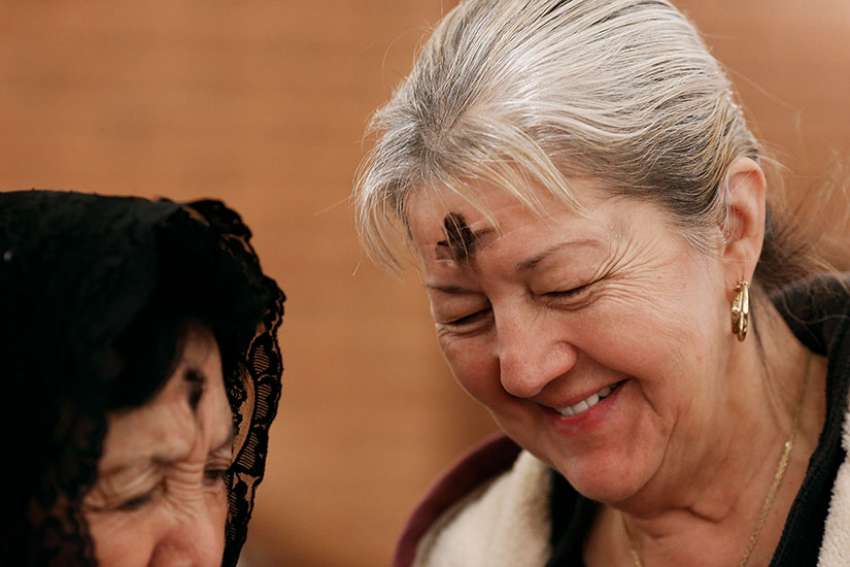As the couple turned to enter the church, their soon-to-be-dining compatriots called out: “Enjoy!”
“Enjoy!” of course, is the one-word command of overbearing waiters as they set down the lunch or dinner you’ve just ordered. Whenever it’s barked at me, I bristle a little bit, like when I’m told to “have a nice day!” by somebody who doesn’t know the first thing about me or the kind of day I’m likely to have.
The curmudgeonly American writer Paul Fussell once wrote that he took great delight in responding to such chirpy dictums by saying, “Thanks but I’ve got other plans.”
So on the one hand it really did seem a bit rich, being told to “enjoy” a service that commences a 40-day slog of abstinence and asceticism, where a priest is going to mark a big black cross with frond ashes on several hundred foreheads while intoning the words: “Man, thou art dust and to dust thou shalt return.”
What kind of masochist would say he enjoys that or would greet the arrival of Lent with anything other than a weary moan of dread?
And yet Lent comes around every year and millions upon millions of Christian believers enter into its demands willingly and — in some sense of the word — happily. Are we all out of our minds? Do we all not-so-secretly hate ourselves? Or could it be, as I believe to be the case, that there is indeed a great good to be enjoyed in regularly pruning back on inessentials and disciplining our appetites?
What we Lenten participants understand is that there are times when what might first appear to be a deprivation is, in fact, a kind of liberation. When we hunger to be hungry, we are saying to our appetites, “Prove yourselves. Convince me, let me honestly feel, that this is something I really want or need or is good for me to have.”
Going without this trinket or that indulgence over here can free us up to give our energies and attention to some greater cause or pursuit over there. Or it can just awaken us to the divine realization that we do not need that thing at all; that what we already have is more than enough. Paradoxically enough, a tempering of hunger can simultaneously sharpen our sense of gratitude.
It is but one more mark of the supreme wisdom of the Church that — quite aside from any sort of religious observance and even for those indifferent or antagonistic to matters of faith — there seems to be a universal inclination to engage in something like Lent that makes its strongest appeal to the human heart at this time of year. It is in this same season that civic, provincial and federal governments all table their budgets for the upcoming year. At the household level, this is when we all cast a skeptical eye on our habits of consumption as we file our income tax returns and it’s also when we do our most extensive cleaning out of inessential furnishings and clutter.
At the personal level, wouldn’t most people agree that diets undertaken at this time of year stand the best chance of succeeding? That’s certainly been my experience. In any other season, I feel like I’m swimming against some belligerent current when I try to eat less, but through late winter and early spring the world seems to offer less resistance to the idea.
I wondered at first if my Ash Wednesday diners exhorting their friends to “enjoy” the ceremony were being ironic. But on reflection (and in tune with the charity of the season) I’ve decided they must’ve been taking the longer view. There are indeed great joys and satisfactions to be had as we strive to realign our appetites and priorities so as to draw closer to Christ in this build-up to the climax of the Church’s year.
(Goodden is a writer in London, Ont. His latest book is Three Artists: Kurelek, Chambers and Curnoe.)


